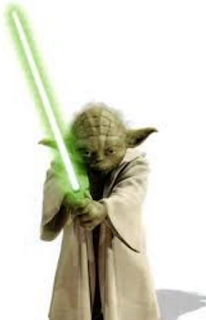A War or A Trek? Fight among the stars or a trip to explore the stars? Which do you prefer?
Star Trek & Star Wars - those star spawned sagas shadow each other like a cloaked Romulan Warbird trailing Bobba Fett's bounty hunter ship Slave One
As a sci-fi writer, I'm often asked which I like better. For one who penned episodes of Star Trek: The Next Generation and Deep Space Nine, the answer may be obvious. Long before I was listed in the credits of a Star Trek episode, however, I preferred seeing Starship Enterprise jump into warp to watching Han Solo's Millennium Falcon burst into hyperspace.
There's no denying George Lucas created fantastic characters. Of course Gene Roddenberry created his universe first. Star Trek blazed a trail in pop culture so fiery, it's still felt today in every aspect of media. That influential legacy can be felt in TV, film, novels, comic books, video games and now even fan produced episodes and movies.
Media success is great, but there's a more fundamental, intellectual facet which not only sets itself apart from Star Wars, but from nearly every other sci-fi themed entity around.
Star Trek brims with philosophy.
Star Wars has philosophy in Jedi? These laser sword wielding warriors strut around in flowing robes talking about the "Force." On surface, they seem to use philosophy. Yoda, one of the wisest teachers waxes philosophically on how the Force is his ally. Yet, when he launches into a savage saber fight with Count Dooku in Attack of the Clones, where's his philosophy? Is Jedi Philosophy only effective in combat? Is there no peaceful way of utilizing the Force?
There's Vulcan philosophy, Klingon philosophy, Bajoran philosophy - you even have Borg Philosophy. IDIC. It's a Good Day To Die. Resistance Is Futile. This promotes Vulcan ideas of the infinite diversity and respect for life, the Klingon notion of fighting for honor and the Borg totalitarian mind set of assimilation being inevitable. Klingons and Borg aren't great role models, but their respective philosophies speak volumes about their race's culture and evolution. Klingons love combat - it's the air they breathe, the blood wine they drink. Borg seek perfection - it's neural energy that feeds total domination of species they encounter.
These are potent intellectual exercises in how a world operates in reality. We use these lessons in sociology, political science and even in psychology. College courses are not only taught with Star Trek's examples, but sometimes focus solely on Gene Roddenberry's universe of ideas. Star Trek deals in complex philosophy and diplomacy - something usually lacking in Star Wars.
The flash of Star Wars is fun. Thrilling. But like choosing between a quick deli sandwich or fast food concoction compared to a nutritious full course meal, the surface sizzle never matches the deep, mental and philosophical stimulation found in Star Trek.
A War or A Trek? That's easy. I prefer a journey of discovery and adventure trek over a war every time



No comments:
Post a Comment